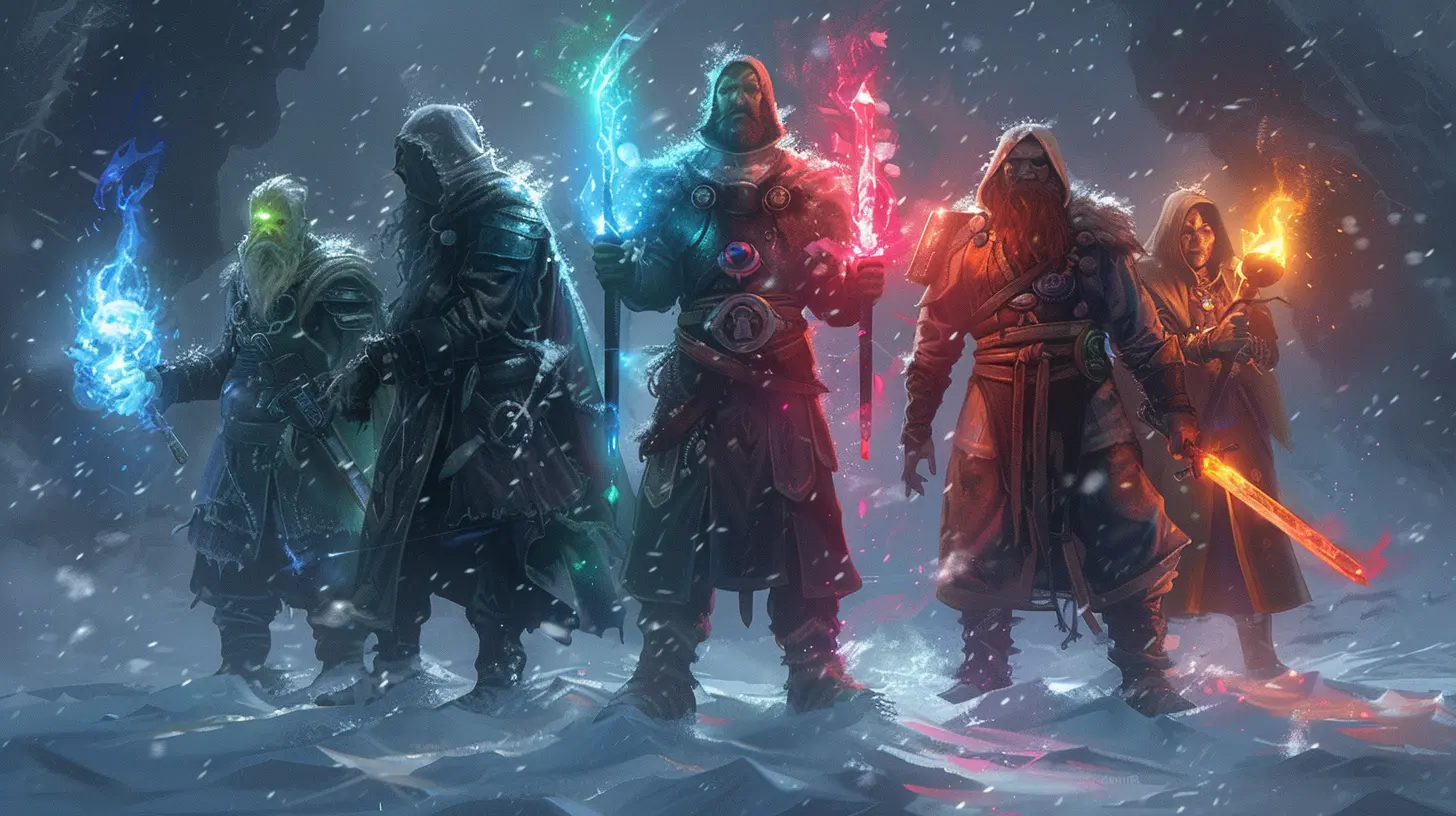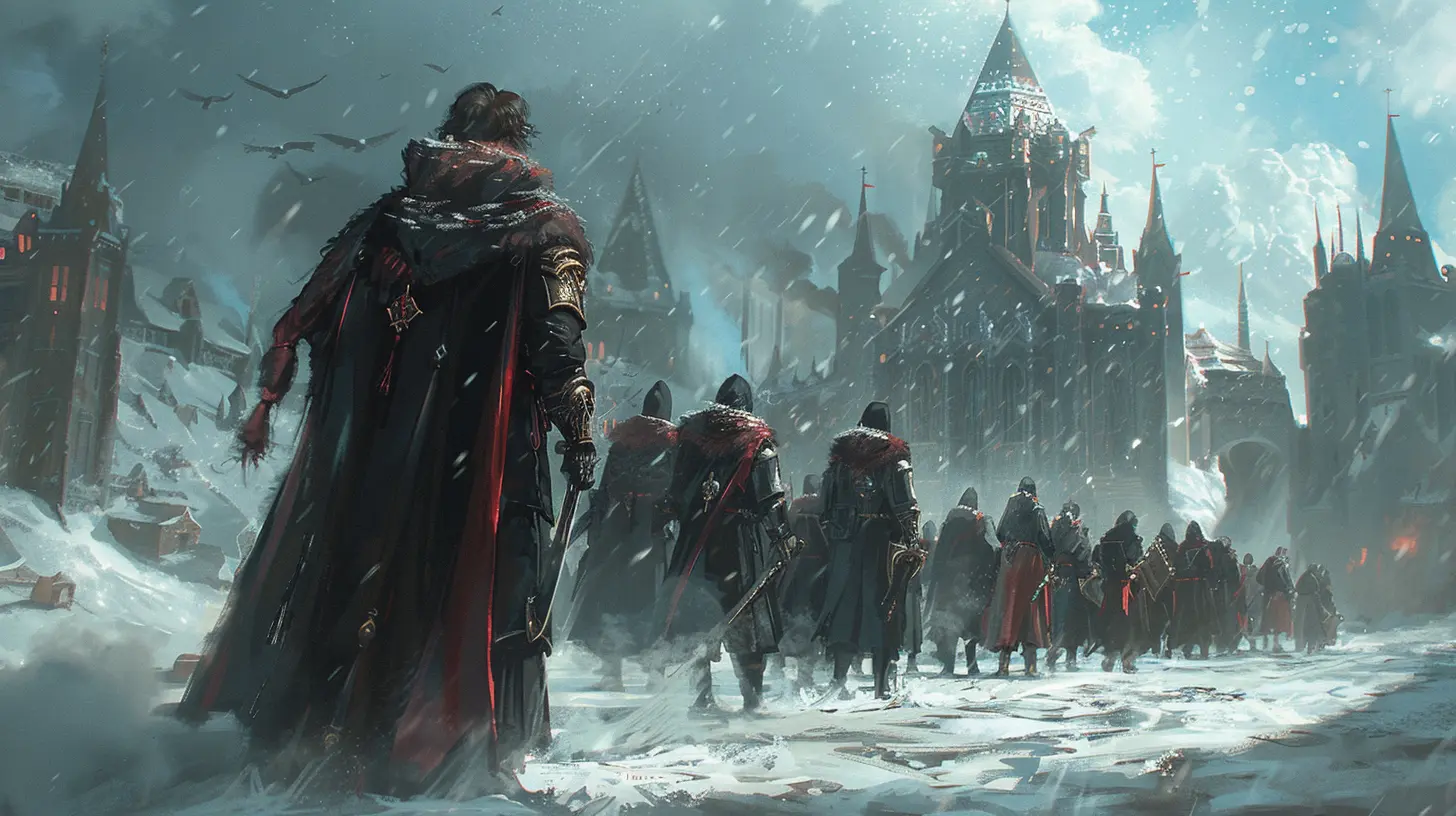Why Cooperative Games Are the Ultimate Icebreakers for Social Gatherings
28 April 2025
Let’s face it—social gatherings can be awkward, especially when people don’t really know each other. You’ve got a room full of people who might be silently sipping drinks, scrolling through their phones, or nervously scanning for someone to talk to. Icebreakers? They sound good in theory, but in practice, most of them feel forced or, worse, cringeworthy. But what if I told you there's a way to turn those initial moments of awkward silence into genuine laughter and connection? Enter cooperative games—the unsung heroes of social gatherings.
These aren’t your overly competitive board games that pit people against each other. Nope. Cooperative games turn the vibe on its head by making everyone work together toward a common goal. They’re fun, inclusive, and most importantly, they make breaking the ice feel natural. Let’s dive into why cooperative games should be your go-to solution for creating an atmosphere where everyone feels comfortable, engaged, and downright entertained.
The Science Behind Why Icebreakers Work (Or Don’t Work)
Before we talk about cooperative games, let’s address the elephant in the room—traditional icebreakers. Sure, a round of "Two Truths and a Lie" can help people share a little about themselves, but how often does it actually get people to loosen up? Most of the time, these activities come off as awkward. Just imagine asking a group of strangers about their most embarrassing moments—cue the forced laughter and polite smiles. Awkward, right?Here’s the problem: traditional icebreakers rarely put people at ease. They often focus on exposing personal details before trust has had time to build. Cooperative games, on the other hand, flip this dynamic. Instead of spotlighting individual vulnerabilities, they emphasize teamwork, collaboration, and shared achievement.
Psychologists have long noted that working toward a common goal cultivates a sense of unity. When people join forces to solve a problem, complete a mission, or achieve victory, they create bonds through shared experience. This “we’re in it together” mentality is the secret sauce that makes cooperative games such phenomenal icebreakers.
Why Cooperative Games Work Magic at Social Gatherings
So, what makes cooperative games the ultimate icebreakers? It’s all about the environment they create. Let’s break it down.1. Cooperation Over Competition
Think about it—competition can be intense. While competitive games like Monopoly or Uno are classics, they come with a downside: someone’s going to lose. Sure, that’s fine if you’re playing with your best friends who won’t hold grudges, but in a social gathering where people might not know each other well, competition can actually make things tense. No one wants to be that person getting too serious about the rules or crushing everyone else’s fun.Cooperative games eliminate this problem entirely. Instead of pitting players against each other, everyone is on the same team. You’re laughing, strategizing, and celebrating together. This dynamic automatically reduces the pressure and helps people relax. No one has to worry about winning or losing, and everyone feels like they’re contributing toward a shared objective.
2. Breaking Barriers Without Forcing It
Have you ever noticed how much easier it is to connect with someone when you’re both focused on the same task? Cooperative games are fantastic because they shift the focus away from the people themselves and onto the activity. This is especially important for introverts or those who are shy in social settings. Instead of forcing small talk, the game gives people something to naturally bond over.For example, in a game like Codenames: Duet, players work together to guess words based on clever clues. It sparks conversation, gets people thinking creatively, and creates those little “aha!” moments that can lead to laughter and high-fives. These organic interactions are way more effective at breaking down social walls than asking people to randomly chat about their weekend plans.
3. Encouraging Humor and Inside Jokes
One of the best things about cooperative games? The hilarious moments that inevitably happen. Whether it’s a ridiculous miscommunication in a game like Just One or a dramatic countdown to success in The Crew: The Quest for Planet Nine, these games are full of opportunities for players to laugh at themselves and each other.That laughter is pure gold. Psychologists say humor is one of the fastest ways to build rapport. Plus, cooperative games often lead to inside jokes—you know, those funny little moments that live on long after the game is over. If you’ve ever found yourself joking about a board game session weeks later, you know exactly what I mean.
4. They’re Easy to Learn and Play
Let’s be honest: no one wants to sit through a 20-minute explanation of game rules when they’re just trying to have fun. The beauty of most cooperative games is that they’re simple enough for newbies but still engaging enough for experienced players. You don’t need to be a board game genius to figure out the basics of Forbidden Island or Pandemic.This accessibility is a big plus for social gatherings. Even if someone’s never played a cooperative game before, they’ll be able to jump in quickly—and since everyone’s on the same team, there’s plenty of support along the way. It’s a great way to level the playing field and ensure that everyone feels included.
5. The Power of Shared Victory (or Defeat)
Let’s not overlook the emotional payoff of cooperative games. There’s something uniquely satisfying about working together to beat the odds. Whether you’re diffusing a virtual bomb in Keep Talking and Nobody Explodes or fending off a zombie apocalypse in Dead of Winter, the triumph of successfully completing a mission brings people closer together. It’s a shared victory that strengthens bonds and boosts morale.And hey, even if the team loses, the shared experience of failure can still be a source of connection. You’ll laugh about how close you came and strategize about what you’d do differently next time. Either way, you’re building camaraderie and creating memorable moments.
The Best Cooperative Games to Bring to Your Next Social Gathering
Not all cooperative games are created equal, and some work better than others depending on the size and vibe of your group. Here’s a quick list of crowd-pleasers that are perfect for breaking the ice:- Codenames: Duet – A word-based deduction game that’s ideal for smaller groups.
- The Mind – A minimalist card game that challenges players to sync up without speaking.
- Just One – A hilarious word-guessing game that encourages clever clues and teamwork.
- Forbidden Island – A fast-paced adventure game where players team up to recover treasure.
- Wavelength – A party game that gets players debating and guessing on a shared spectrum of ideas.
- Keep Talking and Nobody Explodes – A high-pressure bomb-defusal game that’s great for energizing groups.
The key is to choose games that are easy to pick up, quick to play, and full of opportunities for interaction.
Pro Tips for Using Cooperative Games as Icebreakers
Want to maximize the icebreaking magic? Here are a few tips:- Read the Room: Match the game’s energy to the group. If people are shy, start with something low-key like Just One. If the group is already vibing, go for something more challenging like Pandemic.
- Keep It Short: Stick to games that can be played in 15-30 minutes. It’s better to leave people wanting more than to overstay the fun.
- Be a Cheerleader: If you're introducing the game, make sure to explain the rules clearly and encourage everyone to participate. Your enthusiasm sets the tone!
- Have a Backup Plan: Not every game will land with every group, so have a few options ready just in case.
Wrapping It Up
At the end of the day, social gatherings are all about connection. Cooperative games have a magical way of breaking down barriers, sparking laughter, and creating those memorable moments that bring people closer together. Whether you’re hosting a casual game night or looking for the perfect icebreaker for a larger event, these games are a surefire way to turn strangers into teammates—and maybe even friends. So next time you’re planning a get-together, skip the awkward silences and bring out a cooperative game. Trust me, your guests will thank you.all images in this post were generated using AI tools
Category:
Cooperative GamesAuthor:

Luke Baker
Discussion
rate this article
4 comments
Merida Reilly
Cooperative games not only break the ice but build lasting connections! Embrace the fun and teamwork, and watch friendships blossom in the most unexpected ways. Let the games begin!
May 11, 2025 at 3:13 AM

Luke Baker
Absolutely! Cooperative games foster collaboration and create unforgettable moments that strengthen bonds among participants. Let the fun unfold!
Noora Allen
Great article! I love how you highlighted the power of cooperative games in breaking down social barriers. Engaging in teamwork not only fosters communication but also creates lasting memories. It would be interesting to see examples of specific games that work best for different group sizes!
May 9, 2025 at 3:16 PM

Luke Baker
Thank you! I'm glad you enjoyed the article. I appreciate your suggestion and will consider including specific game examples for various group sizes in future pieces!
Nellie Fields
Ah yes, nothing screams “bonding” quite like frantically strategizing how to defeat your friends while arguing over who’s hogging the controller. Cooperative games: where friendships go to thrive... or perhaps just to unravel one awkward miscommunication at a time!
May 1, 2025 at 4:36 AM

Luke Baker
Absolutely! Cooperative games strike the perfect balance between challenge and camaraderie, turning competition into laughter and bonding moments—just watch out for those controller hogs!
Jessica Wyatt
Cooperative games not only foster teamwork and communication but also break down social barriers, creating an engaging environment where participants can connect and collaborate. They’re a perfect blend of fun and social bonding for any gathering!
April 30, 2025 at 2:27 AM

Luke Baker
Absolutely! Cooperative games truly enhance teamwork and deepen connections, making them ideal for fostering relationships at social gatherings.



